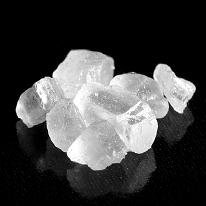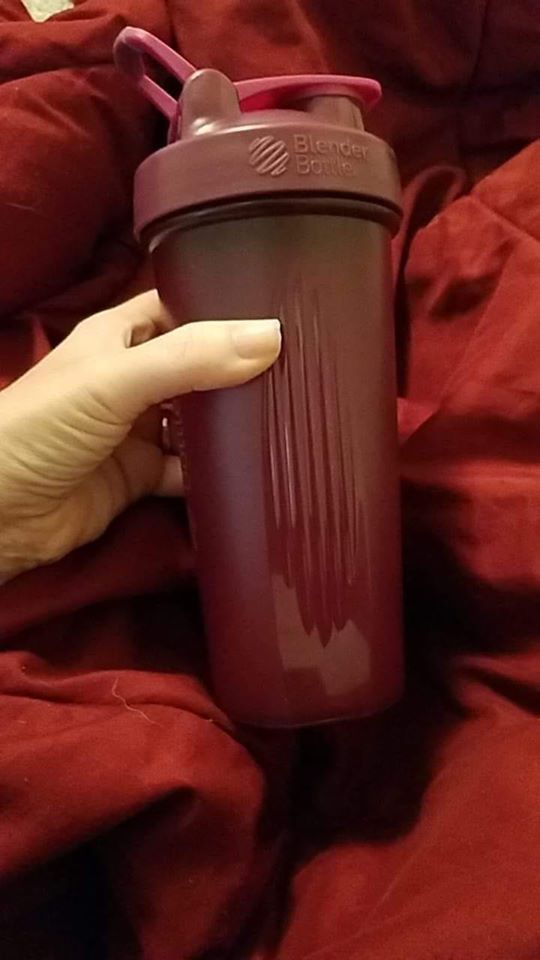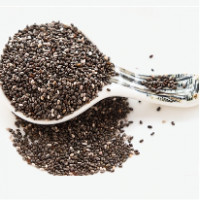
This post was planned for much later in the blogging schedule, but I keep seeing this question everywhere so want to address it now.
While few ask specifically about electrolytes, many say they have a headache, they got dizzy, they were nauseous, they were terribly weak or they had leg cramps.
Here’s the most salient point: insulin causes the kidneys to retain sodium and water. This is why so many diabetics (or even those with insulin resistance) have high blood pressure, edema and congestive heart failure.
We’re often treated with ace inhibitors, beta blockers, diuretics, angiotensin II receptor blockers, calcium channel blockers, alpha blockers, alpha-2 receptor blockers, central agonists, peripheral adrenergic inhibitors and vasodilators – an entire world of pharmaceuticals that attempt to address the fluid issues caused by elevated insulin.
When someone goes on a ketogenic diet or does a fast (whether intermittent or extended), their insulin drops a great deal and their kidneys dump a whole bunch of sodium and water. While this is wonderful for fixing hypertension, edema and CHF, it temporarily causes a lot of unpleasant symptoms, which can be easily alleviated simply by eating some salt or drinking some pickle juice.
But there is more to electrolytes than just salt.
The electrolytes we need most are sodium, potassium, magnesium, calcium and chloride. Salt provides both sodium and chloride, so we’ll begin there.
We’ve all been taught to view salt as a health danger, and both salt-restriction and fluid-restriction are often prescribed to address the medical problems described. But sodium is utterly necessary for life; we’d not have evolved it as a basic taste if it weren’t important. The problem is not salt, but elevated insulin.
When losing a lot of fluid, potassium is washed out also, which is why ketogenic diets cause potassium loss as well. This is the most common cause of cramps, though they can also be caused by low sodium, calcium, magnesium or dehydration.
Magnesium deficiency is also extremely common, whether doing fasting, a diet or neither. Low magnesium also causes low calcium, so even if you get plenty of calcium, you can go low as a side effect of low magnesium.
Low chloride causes fluid loss and hence dehydration.
If you have a severe case of electrolyte loss, you’ll be able to tell which ones you’re short of by looking at the labels on the bags in your IV after they’ve admitted you to the ICU.
If you have a mild case, it’s a bit trickier to figure out. If you Google for the symptoms of hyponatremia, hypokalemia, hypomagnesemia, hypocalcemia or hypochloremia, you get a whole lot of the same symptoms: headaches, cramps, fatigue, muscle weakness, nausea, brain fog, memory issues, general malaise, emotional instability.
In general, since we know both the ketogenic diet and fasting causes sodium and potassium loss, and that nearly everyone is low on magnesium, that tends to be what is recommended to supplement.
The fluid situation is more complicated than simply water in/water out. Within our bodies, we have several areas of water that are differentiated. We have water in our circulatory system, cellular fluid, interstitial fluid and in our lymphatic system. You can technically have severe edema due to a buildup of interstitial fluid, yet be dehydrated on a cellular level.
Insulin screws all this up. It causes the kidneys to retain sodium and water, which is primarily being retained in the circulatory system, causing hypertension and potentially CHF. When that system is full, the excess fluid seems to be stored in the interstitial fluid, which is likely why edema occurs and treatments targeted to the lymphatic system, like a lymphapress or lymphatic massage, relieves it.
Based on my own experience, I am dehydrated when I have a bout of CHF or the edema is particularly bad. This is when I am supposed to be limiting fluids, but I’m ridiculously and insanely thirsty. They taught me to use gum or mints to relieve thirst, which wound up causing me a problem later on.
my experience
Potassium helps relieve both edema and CHF. I had both lymphedema and congestive heart failure when I began my first fast. I had been on prescription potassium for years, and the pills are difficult to swallow as they’re humongous. I had become irritated with the pills, so purchased some potassium bicarbonate to replace the pills. It tastes awful; all the forms of potassium taste rather bad.
I had previously made a summer drink, either strawberry lemonade or raspberry limeade, with real fruit and sweetened with stevia. So when I began the potassium bicarbonate, I added it to that drink to make it more tolerable. I basically calculated the equivalent amount to the K-dur pills and added it to my strawberry lemonade mixture. I also added my daily vitamin C to the same drink, which I take in the form of magnesium ascorbate powder.
When I began fasting, I just continued drinking that as my electrolyte drink, as I was still on sodium and fluid restrictions. A few times, I got dizzy and lightheaded, so ate some salt. However, after doing this a few times, it occured to me that instead of eating salt, I should be reducing my Lasix. I kept checking my BP and as long as it was below 140/80 or so, I’d decide I could lower Lasix further.
Shortly after I had begun eating again, this process got me to where I was off Lasix entirely. However, I was accustomed to not salting food very much and using mints to postpone thirst, and one day when I went to pee, nearly nothing came out.
I’d gone to the other extreme and was dehydrated even at the circulatory level. Step one was throwing out the mints! And step 2 was looking at Anna’s electrolyte drink.
Anna’s electrolyte drink
In the ELAB group on Facebook, we commonly recommend Anna Sul’s electrolyte drink.
|  When I asked Anna’s permission to copy her post, she wanted me to mention that it was developed by the Magnesium Advocacy Group and Morley Robbins.
When I asked Anna’s permission to copy her post, she wanted me to mention that it was developed by the Magnesium Advocacy Group and Morley Robbins. |
In comments, Anna said she thinks the cream of tartar tastes better than potassium chloride.
But for those who prefer using Lite salt or NuSalt/NoSalt products, I calculated the equivalents of Anna’s recipe (approximately 750 mg K and 960 mg Na), which should be mixed into 24 oz of water:
her recipe: 1 1/2 tsp cream of tartar + 1/2 tsp ground* sea salt
* Note that ground sea salt has more grams per tsp than unground; the stuff I have on hand needs about 1 tsp unground to weigh as much as 1/2 tsp ground cause it’s humongous crystals.
None of these are exact, but all are very close and quite safe:
- Lite salt recipe: 1/2 tsp Lite salt and 1/4 tsp salt
- NuSalt or NoSalt recipe: 1/4 tsp NuSalt/NoSalt and 1/2 tsp salt
- potassium bicarbonate (sodium-free baking soda): 1/4 tsp bicarb and 1/2 tsp salt
Strawberry Lemonade Electrolyte Drink
I based my recipe on Anna’s proportions, though my drink needs 2 cups to equal her 28 oz drink. I mix up a gallon at a time of strawberry lemonade; it lasts about a week to 10 days:
Get out a gallon container. Add 1 1/2 tsp potassium bicarbonate, 1 TB *unground* sea salt (1/2 TB if ground) and 2 tsp magnesium ascorbate. Add 2 quarts (8 cups) filtered water and stir well until dissolved completely.
Wash and rinse 3 whole lemons (especially if they’re not organic!), then slice lemons into rings and squeeze each as you place into the container.
Measure 3 1/2 cups frozen strawberries (about half a 32 oz “family pack”) and place into food processor with the s-blade. Add a cup of lemon juice and 1/2 tsp plain stevia (like Sweetleaf powder). Process until completely pureed then add to container.
Fill with water and store in fridge overnight.
Following day, strain with metal strainer into second gallon container (one with a spout); top off with water after straining the solids out to yield a full gallon.
This recipe makes 16 cups; I drink at least a cup daily, 2 or more when fasting. Each cup contains:
400 mg potassium
430 mg sodium
30 mg magnesium
410 mg ascorbate (vitamin C)
4.5 g carbohydrate
22 calories
If you don’t want to spend your carbohydrates and/or calories on electrolytes, I recommend Anna’s electrolyte drink which is virtually calorie-free.
And if you’re really not into mixing up either electrolyte recipe, check out my recommendation for premade electrolytes.
magnesium supplements
We pretty much all need to supplement Mg whether on a ketogenic diet, fasting or neither.
The most highly recommended supplement are chelated for best absorption; such as one containing magnesium glycinate, best taken with food to maximize absorption.
Often recommended is a product called Calm, which contains the chelate magnesium citrate; many say it helps them sleep, so is likely best taken at bedtime
I find the most frugal solution to be dissolving epsom salts in a spray bottle and spraying myself after each shower. Topical application of magnesium has been shown to raise serum levels; also, for me, it means not another damned pill to swallow (I’ve been on entirely too many medications for entirely too long).
It dries on your skin like sea water does, so if you dislike that feeling, you might try spraying it an hour before a shower instead. Alternatively, epsom salt baths are very effective also; I have even added epsom salts to my “recipe” for treating pool water in the summer.
Don’t fast without electrolytes!
There’s a bazillion products out there for ready-made electrolytes; many ridiculously overpriced given we can mix up some stuff at home dead cheap.
You *must* do them to avoid symptoms; electrolytes are not optional. If buying a product, look for one that will get you approximately the proportions of sodium and potassium as indicated, and minimal carbohydrates and calories.
This will also reduce the vast majority of symptoms known as “keto flu” if you’re beginning a ketogenic diet.
And you almost certainly need magnesium, even if not changing your diet.
If you really don’t want to deal with mixing your own drink, I recommend the KetoChow product in the sidebar as it has a good balance of sodium and potassium, though you’d still need a good source of magnesium.
If you’d like to understand more about electrolytes, I put together a short playlist on YouTube explaining the importance of electrolytes.




Very interesting, I already take a magnesium, a zinc and a potassium tablet daily because if I drink less than a litre of water daily I suffer from severe leg cramps when on a restricted diet. Normally I drink over two litres plus at least 3 black coffees. Found the recipes very interesting. Thank you .
PS I am not diabetic!
I’m not anymore either! 😉